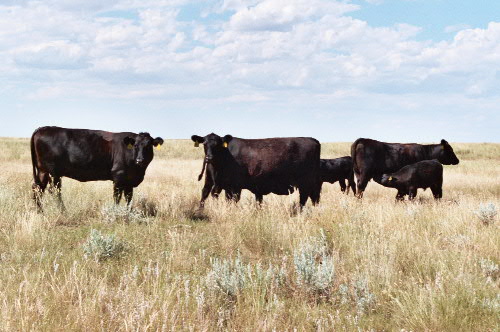
Agricultural News
History Can Teach Southern Plains Ranchers Valuable Lessons, Jay O'Brien Says
Tue, 11 Mar 2014 15:56:52 CDT

Texas rancher Jay O'Brien says he's not really so much a rancher as a farmer. His spread in the Texas Panhandle doesn't so much produce beef as it produces grass. That may not seem like an important distinction, but he says it makes all the difference in how the land is cared for and how ranches can be profitable in good times and in bad.
O'Brien recently spoke at a "Surviving the Elements" symposium sponsored by the National Cowboy and Western Heritage Museum. The series of symposia takes a look at land and water issues facing residents of the Western United States. Week one of the series looked at history to determine what could be learned from earlier times.
O'Brien, tells Radio Oklahoma Network Farm Director Ron Hays history has a lot to teach us-if we will let it. (You can hear their full conversation by clicking on the LISTEN BAR at the bottom of this story.)
"There is so much to learn from history, but, unfortunately, humans are not good at learning from history. We all like to be optimists. We all like to think that everything is going to be OK. And, sometimes, we reach out a little far in our optimism and assume things that aren't necessarily true."
In his presentation, O'Brien says understanding the true importance of natural resources is key.
"As ranchers, we only have one real asset and that's the grass. And so we have to take care of that grass so that we can produce this high quality product, this beef, from this renewable resource of grass. And, if we don't take care of it, we won't be able to do as good of a job of producing beef."
O'Brien reviewed a great deal of the literature and the studies conducted over several decades to learn what they have to say about preserving that foundational renewable resource. The results he found were startling.
"What they show is there is no advantage to plant health, no advantage to stocking capacity, of rotational grazing systems as opposed to continuous grazing. The secret is to know the capacity of your land and not exceed it. So, these people that come in and promise that you increase the grazing capacity by 50 percent, they're doing you a real disservice because there is no way, other than irrigation, there is no way to increase that grazing capacity and still take care of the land."
O'Brien says that not only do the rotational grazing schemes cost more in terms of damage to the land, they also cost more in terms of capital and labor.
"I'm not saying don't rotate, because there are reasons to lay out pastures, there are reasons to do things like that. I'm saying don't think the system is going to give you something that the land cannot give."
What the land is able to give is finite and, in times of drought, it can give even less. But, O'Brien says, ranchers across the Southern Plains should know by now to take it in stride.
"This is not unexpected. Drought is a guarantee at some point. We had droughts in the 1890s. We had droughts in the 30s. We had drought in the 50s. We're just hopefully ending a drought here, but we don't know that for sure. But, so, drought is a fact of life and we need to manage so that during the drought we can destock and continue to care for the land."
O'Brien says he handles the drought by only using about half his land for his cow herd. When times are good and rains are plentiful, he adds stockers to his operation. When drought comes, he destocks and preserves his cow herd. As the drought ends, he slowly adds stockers as the land recovers.
What it amounts to, O'Brien says, is that the condition of the land dictates how much beef he can produce. In reality, he says, he is not so much a beef producer as he is a producer of forage.
"What we're doing is taking the renewable resource, which is grass, and turning it into the highest-quality protein available-beef which has the amino acids, the iron, the zinc and the protein in its tastiest form. And, so, we're converting this renewable resource to beef and that's the best use for the grass."
WebReadyTM Powered by WireReady® NSI
Top Agricultural News
More Headlines...


















